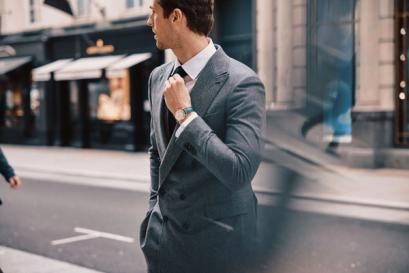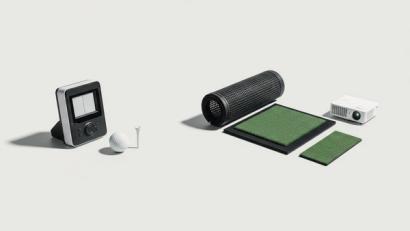
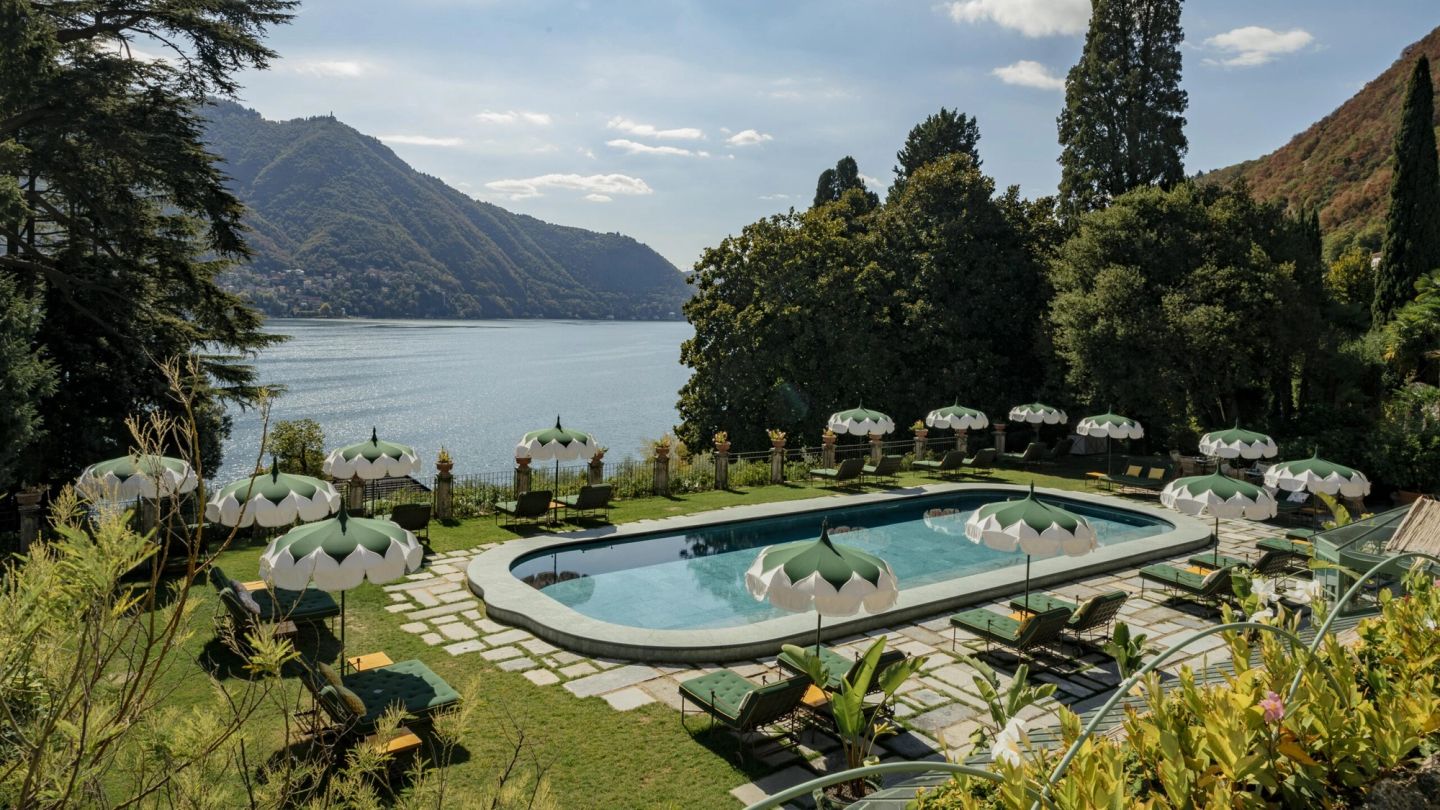
Down on Lake Como, Passalacqua is almost too good to be true. Almost.
All good hotels have a sense of theatre. But at certain times, in certain lights, Passalacqua becomes pure pantomime perfection.
- Words: Joseph Bullmore
The waiters at Passalacqua mow the lawns in white dinner jackets. At least, I think they do. I mean, I saw them doing it; I took photos of them in their exquisite pale cream blazers, Stihl leaf-blowers slung over their shoulders like diplomatic sashes, as they were midway through the act. But still, a glass of white wine down and the hazy sunshine descending like a spotlight, the spectacle requires a quick eye-rub; a little pinch of the arm to ensure you haven’t slipped into a vongole coma by the pool and are dreaming the whole thing up from half-remembered snatches of The Great Gatsby.
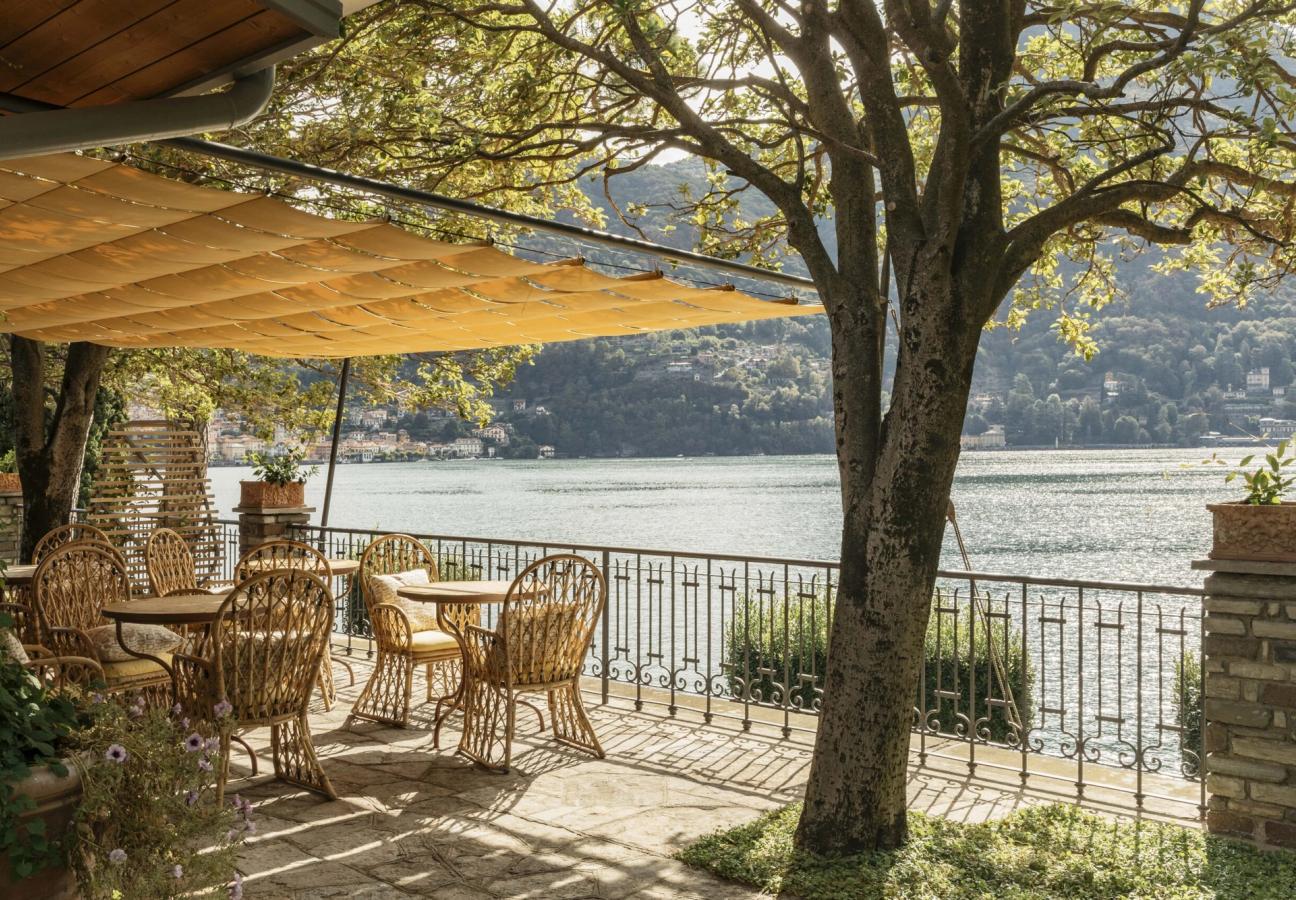
It is almost too perfect; too novelistic an image; too pleasing a combination of effortful care and effortless style. Heavy machinery and tuxedos. All good hotels have a sense of theatre. But at times, in certain lights, Passalacqua feels like one of those immersive, avant-garde theatrical experiences, where the actors place you at the centre of the drama and everything seems perfectly, eerily calibrated to your every movement and desire. At one point over lunch on the terrace, with a little seaplane drifting silently over the blue hills, its flightpath framed perfectly between a symmetrical vista of vast pine trees leading down to the blue lake, I did question out loud whether this wasn’t some grand simulation, cooked up by a benevolent AI from the future with a particularly good eye for parasols. If so, my message to our dear robot overlords is simple: keep up the good work. And great job on the vongole.
"The result is a hotel that barely feels like a hotel..."
In reality, the easy perfection of this hotel, which sits on the golden, western shore of Lake Como below the pretty little town of Moltrasio, comes courtesy of the entirely un-artificial De Santis clan — namely Paolo, Antonella and Valentina. They’re the family hoteliers behind the Grand Hotel Tremezzo, a few miles north of here, which towers over the lake in lemon yellow symmetry, and which they’ve run since 1975. It’s perhaps the most hotel-y of all hotels on the lake; the very picture of alpine grand dame splendour, whose lines and awnings seem to have been lifted wholesale by Wes Anderson for his Grand Budapest Hotel confection; a living, shining postcard of a thing.
But Passalacqua is a much homelier proposition. The palazzo was built in the 18th century on land originally owned by Pope Innocent XI. It was commissioned by a certain Count Andrea Lucini Passalacqua, who constructed a lovely, stately rectangle of a home above a green cascade of flowing gardens and terraces. More recently, the place belonged to an American financier, who’d renovated it in 2000 and asked the fabled landscaper Emilio Trabella to restore its five-acres of grounds to a glory that the likes of Bellini and Churchill (frequent former guests at the house) would have recognised. Then, in 2018, following a hopeful auction bid, the De Santis family took ownership of the villa, and the work really began — a three-and-a-half year process which soon became the most anticipated opening in Italy.
The result is a hotel that barely feels like a hotel. There’s no grand lobby or bustling foyer. On arrival, you walk across the golden stretch of gravel from the double gates to the house and into a bright salon, doors open and staff slipping to-and-fro, with the breezy feel of a country house hallway. The kitchen is equally homely — a peachy-toned room, gleaming with copper notes and arranged around a central island, which you are free to swan into and out of at will. The food is simple in the way that really clever Italian food always is. Excellent ingredients; nothing too tricksy or ornate; indulgent carbohydrates perfectly cooked. Sometimes silken spaghetti al pomodoro, accompanied by a glass of something Barolo-ish, is all you really want in life.
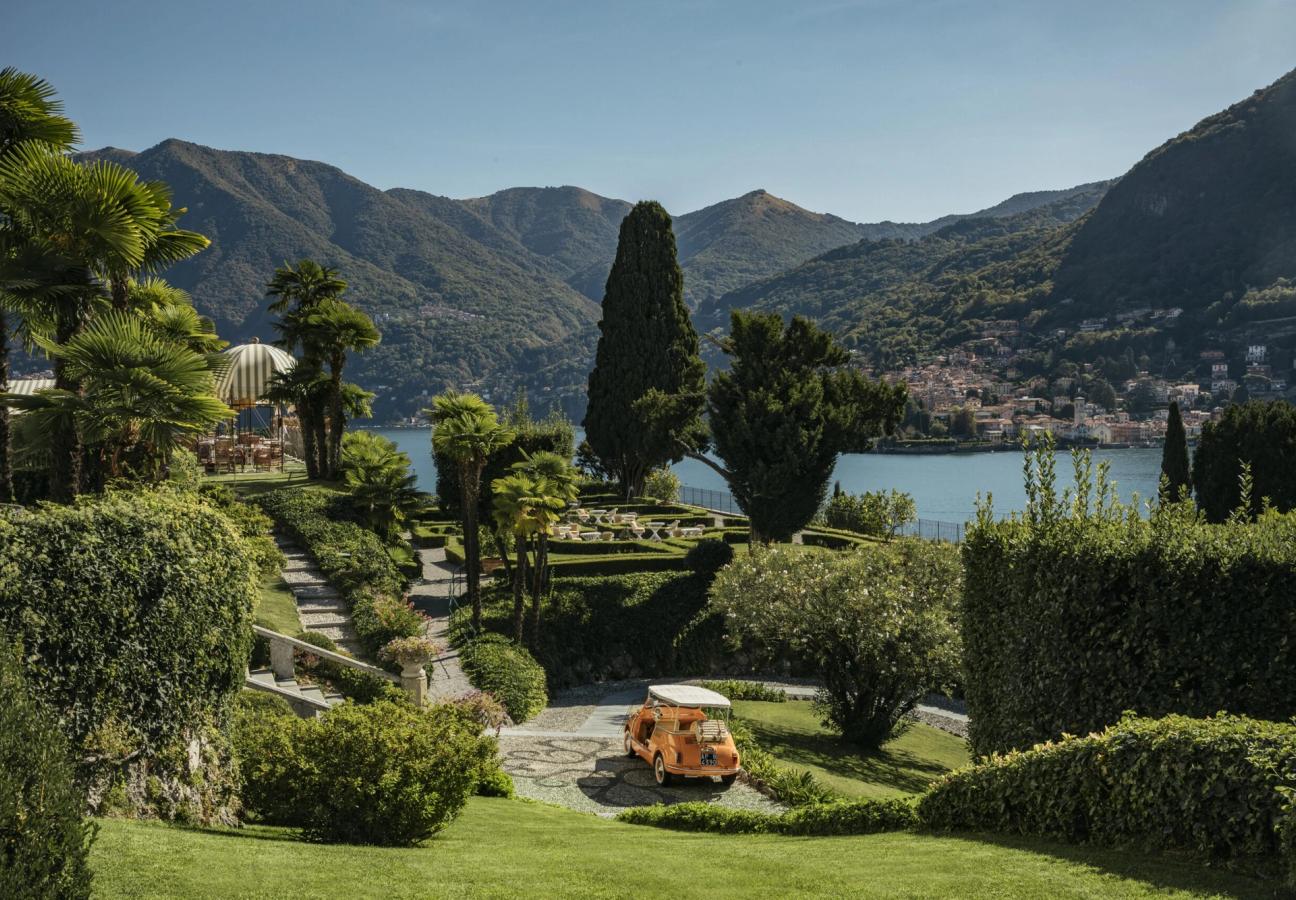
The scale of things is what’s so pleasing here. It’s intimate and close and personable, as though you are country house guests of some eccentric, elusive, avuncular host who may just shimmer into view at any moment and apologise for not having said hullo sooner. (Something to do with a stalled Riva and a dowager countess, one suspects). And yet, at the same time, Passalacqua feels sprawling and open and large, its terraced gardens full of private spots and quiet corners, with lovely little touches to discover at every turn. Like the terracotta tennis court, which almost seems to hang over the lake — they call it their ‘infinity court’ — and which probably keeps a boat boy permanently occupied in retrieving lost tennis balls from the blue waters with a special net.
I was particularly enamoured with the pool and its surrounds — the sage-toned greenhouse which flanks its edge and is used now as a special, light drenched dining room; the perfectly-positioned parasols in grass green and white, which appear to bloom like the swollen flowers in the rose garden below. In the evenings, the central stone steps up to the house are dotted with ochre cushions, fringed in dusty red piping. Elegant people in Persols drape over them for aperitivi and olives. If you arrive by boat, the chaps will collect you from the private wooden pontoon at the lakeside in a little converted Fiat 500 with a striped fabric hood. It’s at moments like that, as you wind back up the central path to the villa and someone offers you a glass of crisp Franciacorta, that the simulation theory begins to gently take hold.
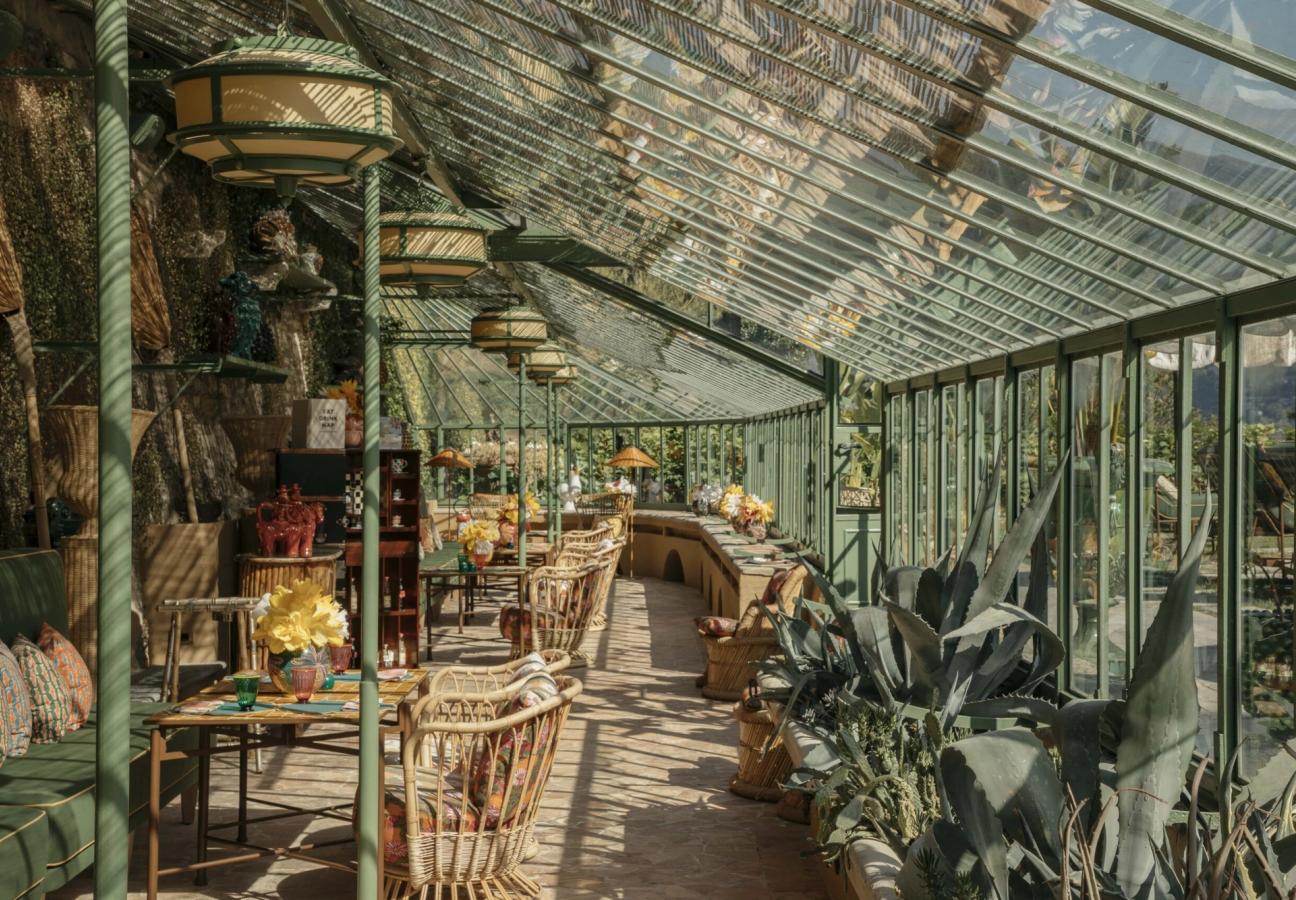
Little flashes and interactions confirm your suspicions. An alpine rain cloud hovers momentarily over the grounds on our first day, and so Alex Bargna, the charming head-of-bar, appears with two sizable martinis to buck up the mood. Alex, a Moltrasio local, is one of those people you feel certain you’ve met before, even though you know you haven’t — a jaunty, ever-present figure with the conspiratorial wink of a favourite cousin. He mentions the clandestine network of tunnels that Passalacqua’s 18th century owners installed below the house in the way that 18th century owners tend to, and then, digging a huge ring of jangling keys from a tailored pocket, beckons us to follow him for a private tour.
From below, you are reminded of the meandering history of the place and the region — the rugged past of merchants and traders, who used the lake as their shipping route and marketplace; the darker days of World War Two, when prisoners of war were incarcerated in these very vaults. Then, emerging via a secret portal into the light, you’re down by the cool waters of the lake again, and back in Como’s present — a place of proud architecture, gleaming teak speedboats, impressive cheekbones, good hair. Directly opposite, beyond the water, the steep, misty slopes around Blevio and Monte Boletto blend into the evening sky. They have a hell of a view.
One more little detail; one further, all-too-perfect touch. At breakfast, when you have done five laps around the open kitchen and plumped for the house-smoked salmon and ummed and ah-ed over the glistening pastries and inhaled your eggs benedict at short range, they bring out a little tower and place it by the table. It has two Sicilian delicacies on it which are worth the airfare alone: a little choux-like bun, filled with fresh whipped cream; and a dollop of coffee granita, served in a perfect little cup, eaten with a tiny spoon, and topped with… well, more fresh whipped cream. Did you know you wanted that for breakfast? Would you even have the guts to ask for it if you did? But the greatest hotels, like the sharpest simulations, understand us better than we understand ourselves.
Read next: Our most stylish friends tell us where they’re off to this summer

